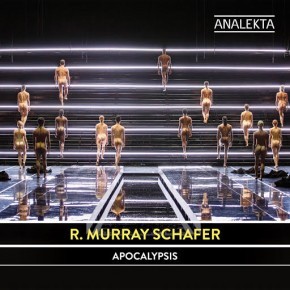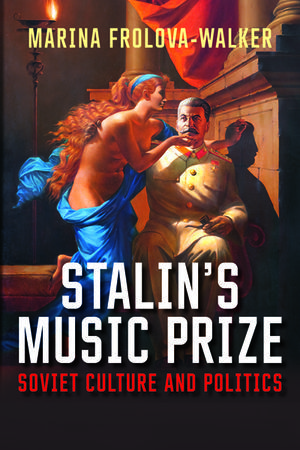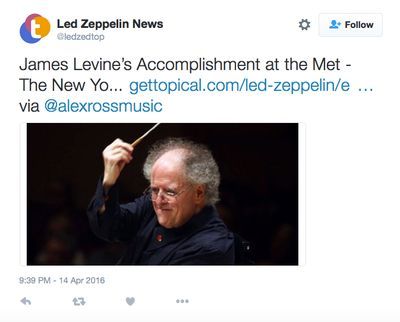Alex Ross's Blog, page 100
April 30, 2016
A Tenney moment
James Tenney originally wrote Saxony, an ecstatic extrapolation of the natural harmonic series, for one or more saxophones; he also made a brass-quintet version, which went unplayed until WasteLAnd, one of the country's most far-sighted new-music series, presented it in Los Angeles last spring. The performers were Allen Fogle, Matt Barbier, and Luke Storm, of Trio Kobayashi, plus Aaron Smith and Hopscotch's Jonah Levy. It's great to see WasteLAnd uploading videos of its concerts; I also recommend Ashley Walters's rendition of Liza Lim's Invisibility, from the same 2015 concert, which I was fortunate to attend.
Nightafternight playlist
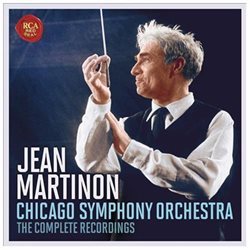
New and recent releases of interest.
— Jean Martinon, Chicago Symphony Orchestra: The Complete Recordings (RCA)
— Morton Gould, The Complete Chicago Symphony Orchestra Recordings (RCA)
— Horatiu Radulescu, Piano Sonatas and String Quartets I; Stephen Clarke, JACK Quartet (Mode)
— Hilda Paredes, Señales and other works; Irvine Arditti, Ensemble Signal, Alberto Rosado, ensemble recherche, Adrián Sandí (Mode)
— Gerald Eckert, An den Rändern des Maßes, Bruchstücke ... erstarrtes Lot, Sopra di noi... (niente); Ensemble Reflexion K (Mode)
— Ben Johnston, String Quartets Nos. 6, 7, 8; Kepler Quartet (New World)
— R. Murray Schafer, Apocalypsis; David Fallis conducting various forces (Analekta)
— Henry Threadgill, Old Locks and Irregular Verbs (Pi)
— Nicholas Deyoe, Facesplitter, Clint McCallum, Bowel Resection; Matt Barbier, trombone (Populist)
— Alfredo Casella, Symphonies Nos. 1-3; Gianandrea Noseda conducting the BBC Philharmonic (Chandos)
— Christopher Rouse, Symphonies Nos. 3 and 4, Odna Zhizn, Prospero's Rooms; Alan Gilbert conducting the New York Philharmonia (da capo)
— Anohni, Hopelessness (Secretly Canadian)
April 26, 2016
Now playing: Schafer's Apocalypse
A recording of the Luminato Festival production of R. Murray Schafer's Apocalypsis has appeared on the Analekta label. At the head of a vast array of performers are Laurie Anderson, as John the Revelator; Tanya Tagaq, as the Old Woman; and Brent Carver, in the choice role of the Antichrist.
April 25, 2016
Symphomania reawakens
Over the weekend, longtime Noise friend Will Robin, soon to take up a professorship in musicology at the University of Maryland, organized a second Symphomania marathon on WQXR's Q2 — a channel that recently won a well-deserved Peabody award for Nadia Sirota's show Meet the Composer. Symphomania, as I noted in a New Yorker web piece last year, is dedicated to the proposition that twenty-first-century composers are writing major works for orchestra that symphony orchestras ought to be playing far more than they do. The 2016 edition was even more diverse and absorbing than last year's. The composers ranged from celebrated European figures such as Wolfgang Rihm and Kaija Saariaho to younger Americans like Andrew Norman and Ashley Fure. A transatlantic flight caused me to miss a good portion of the program, but I'm planning to catch up during an imminent rebroadcast (begins Tuesday at midnight). I did hear the powerhouse ending, which moved from Peter Maxwell Davies's noble, oratoriolike Symphony No. 10 to Rebecca Saunders's transfixingly eerie miniata — a glimpse of its electric-guitar part appears above — and on to a series of works of decreasing duration: Liza Lim's The Guest, Nina Young's Agnosco Veteris, Julia Adolphe's Dark Sand, Sifting Light, Valentin Silvestrov's Abschiedsserenade, and Peter Ablinger's Drei minuten. That sequence speaks volumes about the range and power of the music of our time.
April 22, 2016
For Prince
I wish I knew enough to say something intelligent about Prince, the pop colossus who died yesterday at the age of fifty-seven. The show I saw at Madison Square Garden in 2004 — with my husband, a devoted Prince fan — was one of the most staggering live performances I've ever seen, in any medium. It was a feast of lusty precision, and the sense of authority emanating from the man in the middle was almost frightening. The relationship between performer and spectator somehow flipped, so that the huge crowd became part of a band that was being closely watched and urged to greater passion. Prince was, above all, a profoundly musical being whose most startling displays of virtuosity never lost sight of the fundamental harmonic landscape of a song (his solo on "While My Guitar Gently Weeps" is a great example). Pop-critic colleagues are writing about him beautifully; try Ann Powers, for a start. Or just listen to Miles Davis, above.
April 20, 2016
Now playing: Gerald Eckert
Mode Records has released on the edges, a disc of works by the German composer-cellist Gerald Eckert, born 1960. It comes courtesy of Ensemble Reflexion K, which is based, improbably, in the Baltic Sea resort of Eckernförde, in Schleswig-Holstein a little south of the Danish border. Eckert studied with Brian Ferneyhough and Jonathan Harvey, among others; his language of gradually billowing and dematerializing sounds is closer to the latter than the former, and, in its attention to the sonic complexity of sustained tones, also brings to mind Giacinto Scelsi. The three works on the program — An den Rändern des Maßes, Bruchstücke ... erstarrtes Lot, and Sopra di noi... (niente) — periodically erupt into dense, seething masses of instrumental sound, yet the dominant atmosphere is contemplative, as if chaotic natural processes were being observed telescopically across vast distances. A program note by Jörg Meyer asserts that Eckert is concerned with the "concept of nothingness in its transcendental abundance"; the music bears out this flamboyant claim. Above is Eckert's Feld 3, from another Reflexion K disc, on Neos.
April 19, 2016
An AACM moment
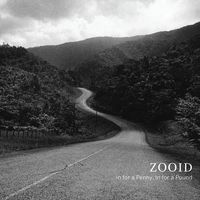 This year's Pulitzer Prize for music has gone to an unexpected but entirely worthy recipient: the jazz-affiliated composer and reed player Henry Threadgill, for his suite In for a Penny, In for a Pound. Threadgill is a major presence in the Association for the Advancement of Creative Musicians, or AACM, which arose in the 1960s and also includes Anthony Braxton, Wadada Leo Smith, Muhal Richard Abrams, Roscoe Mitchell, George Lewis, and various others. (Lewis's A Power Stronger Than Itself is the definitive account of the movement; Lewis has also composed Afterword, an operatic meditation on AACM.) I'd recently spent time listening to Braxton and Smith, as both made memorable appearances at the Big Ears Festival in Knoxville. I hadn't heard In for a Penny until yesterday's announcement, and am happily consuming Pi's recording, which can be obtained on Bandcamp. The work generally avoids conventional tonality, but it's marked by memories of bygone music, particularly the bounce of parade bands. The toughness of the harmony is leavened by lucid, playful, often delicate textures. Seth Colter Walls, who also covered Big Ears and knows the advanced-jazz world far better than I do, spoke to Threadgill about his Pulitzer win. (Seth's pieces for the Guardian are invariably essential reading.) Ethan Iverson interviewed Threadgill at length back in 2011.
This year's Pulitzer Prize for music has gone to an unexpected but entirely worthy recipient: the jazz-affiliated composer and reed player Henry Threadgill, for his suite In for a Penny, In for a Pound. Threadgill is a major presence in the Association for the Advancement of Creative Musicians, or AACM, which arose in the 1960s and also includes Anthony Braxton, Wadada Leo Smith, Muhal Richard Abrams, Roscoe Mitchell, George Lewis, and various others. (Lewis's A Power Stronger Than Itself is the definitive account of the movement; Lewis has also composed Afterword, an operatic meditation on AACM.) I'd recently spent time listening to Braxton and Smith, as both made memorable appearances at the Big Ears Festival in Knoxville. I hadn't heard In for a Penny until yesterday's announcement, and am happily consuming Pi's recording, which can be obtained on Bandcamp. The work generally avoids conventional tonality, but it's marked by memories of bygone music, particularly the bounce of parade bands. The toughness of the harmony is leavened by lucid, playful, often delicate textures. Seth Colter Walls, who also covered Big Ears and knows the advanced-jazz world far better than I do, spoke to Threadgill about his Pulitzer win. (Seth's pieces for the Guardian are invariably essential reading.) Ethan Iverson interviewed Threadgill at length back in 2011.
Bookshelf
New and recent publications of interest.
Marina Frolova-Walker, Stalin's Music Prize: Soviet Culture and Politics (Yale)
Peter Dickinson, Words and Music (Boydell and Brewer)
Markus Rathey, Bach's Major Vocal Works: Music, Drama, Liturgy (Yale)
Laura Kuhn, ed., The Selected Letters of John Cage (Oxford, out May 10)
Christian Thielemann, My Life with Wagner (Pegasus, out May 3)
Anna Beer, Sounds and Sweet Airs: The Forgotten Women of Classical Music (Oneworld, out May 10)
April 18, 2016
Big Ears Festival
The front portion of the Braxton Trio line at Big Ears.
Embrace Everything. The New Yorker, April 25, 2015.
April 14, 2016
Together again for the first time
I have a peculiar pair of items on the New Yorker website: a Cultural Comment on the most recent lawsuit against Led Zeppelin; and a briefer note about the retirement of James Levine from the Metropolitan Opera, announced today. A strange day of writing, to be sure.
Alex Ross's Blog
- Alex Ross's profile
- 425 followers


